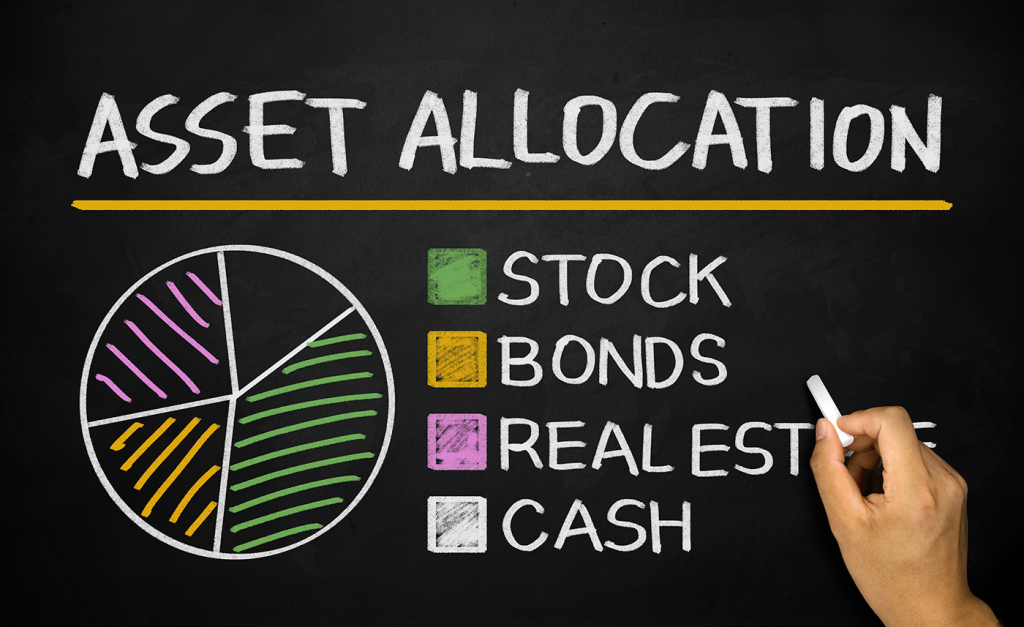Top 20 investing terms you need to know
Does the world of investing seem like an exclusive members’ club? Do terms like GICs, ETFs and REITs leave you feeling confused and excluded?
Here is a handy reference list featuring 20 of the most common investing terms. These descriptions (listed alphabetically) will increase your investing knowledge and help you better understand your next investment conversation with your ACU financial advisor.
Asset allocation is an investment strategy designed to balance risk and return by allocating proportions to different types of investments. For example, you might have 40% invested in stocks, 40% in bonds and 20% in cash. Each asset type has a different level of risk and reward. The higher the percentage of stocks, the higher the risk level, which could also mean the higher the potential return.

Bonds are effectively money that you lend to a government or corporation, with pre-set maturity dates, at which time they’re paid back in full. Bonds have guaranteed interest rates, and the payments — called coupons — are paid out periodically.
Capital gain happens when there is an increase in the value of an asset, such as a stock or real estate, and refers to the amount gained above the original price you paid. It only comes into play when the asset is sold and is usually subject to “capital gains tax,” unless it is in a tax-sheltered account such as a TFSA Basics.
Diversification is designed to reduce risk by minimizing your exposure to one particular asset and location. For example, a diversified portfolio might contain stocks from several different industries, with companies that are based in different regions of the world.
Dividends are the portion of a company’s profits that are paid out regularly to shareholders. More established companies typically pay dividends, while newer companies often don’t, preferring instead to use profits to finance their growth.
ETFs (exchange-traded funds) are funds that allow you to invest in a variety of companies, all at once. They give your portfolio diversification, typically with low fees.
GICs (Guaranteed Investment Certificates) are investment vehicles offered by financial institutions with a low-risk, fixed rate of return. These can be great investment options for anyone, whether you’re just starting out or you’re nearing retirement.
Income investing is an investing strategy that aims to build a portfolio of assets that will deliver a steady stream of income. Dividend-paying stocks, bonds, GICs and real estate could all be part of an income investing portfolio.

Index funds are portfolios of stocks that aim to track a particular market index. The idea is to give you access to the index without having to buy a whole bunch of individual stocks.
Management fees are what you pay a fund manager for their portfolio management services. For example, mutual funds and ETFs come with management fees.
Margin is an investment technique of borrowing money from an investment brokerage to buy stock. It allows investors to buy more stock than they could otherwise.
Market index is the term for a measurement of a specific segment of the stock market and its performance. For example, the S&P/TSX Index follows the stocks of around 250 companies on the Toronto Stock Exchange.
Mutual funds are a type of investment made up of a collection of stocks, bonds or other assets managed by a fund manager, for a fee. Learn all about the basics of mutual funds here.
Portfolio is the word used to describe the group of investment assets held by an individual, which can be made up of stocks, bonds, funds, GICs, ETFs, real estate and REIT investments, among others.
Preferred shares are like common shares, in that they give you a partial ownership of a company. However, their share dividends are agreed upon in advance and they tend to trade at par value (their original value) because they can be sold at that same price. Also, they usually allow for no voting rights in the company.

REIT, or “real estate investment trust,” is a term used to describe when a company manages a collection of commercial, industrial and/or residential properties. Investors are paid dividends, usually from rent. An REIT allows you to invest in real estate without the headaches of being a landlord.
A return is the total gain (or loss) from an investment, usually expressed as a percentage of the amount invested. For example, if you made a total of $50 on a $1,000 investment, your return would be 5%.
Return on equity (ROE) is calculated by dividing a company’s net income by what it owes to its shareholders. ROE is used to measure how effectively the company is producing profits from its assets.
Stocks and shares are terms often used simultaneously to refer to securities, or certificates of part ownership of a company. “Stocks” describes ownership in various companies, while “shares” usually refers to ownership of just one company.
Yield refers to the money you receive from an investment (usually shown as a percentage), typically in the form of interest or dividends, but does not include any capital gains.
Ready to explore more about investing?
An ACU financial advisor can explain more about investments, how to build a balanced portfolio that matches your personal goals, and how they might play a role in your financial future.
Contact us today to make an appointment.
Up Next
Sustainability: How ACU is turning words into action
A hand holding a seedling
For ACU, Pride radiates outward
“I’ve always wanted to instill a change in the world for the better,” says Cristina McCourt, Financial Account Manager Trainee and member of the ACU Pride Committee, an employee-led resource…
Royal Aviation Museum travels to its final destination—with ACU’s help
A stone’s throw from the main terminal of Winnipeg Richardson International Airport you’ll find one of Canada’s hidden gems, where the airplanes are a little more exciting than your typical…




